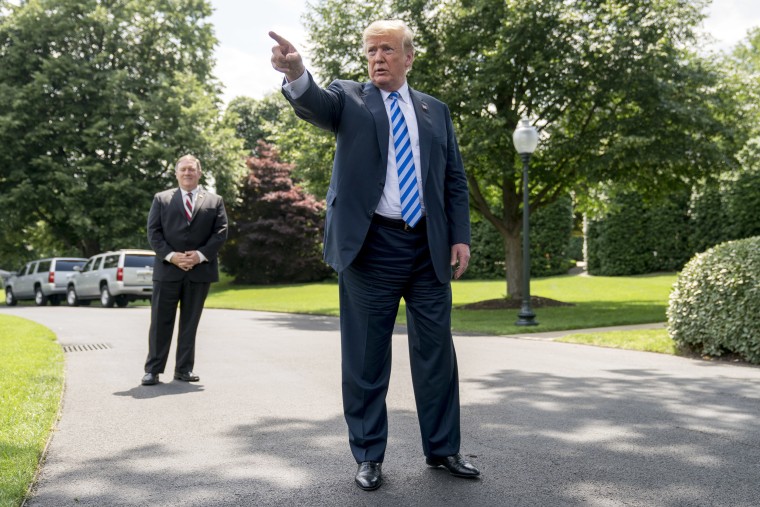President Donald Trump claimed Monday that he had the right to pardon himself but wouldn’t do so because he had "done nothing wrong."
"As has been stated by numerous legal scholars, I have the absolute right to PARDON myself, but why would I do that when I have done nothing wrong?" he tweeted.
“In the meantime, the never ending Witch Hunt, led by 13 very Angry and Conflicted Democrats (& others) continues into the mid-terms!” he added, referring to special counsel Robert Mueller’s investigation into Russian interference in the 2016 election.
Trump added falsely that the "the appointment of the Special Councel is totally UNCONSTITUTIONAL!," misspelling the word "counsel." (The appointment of a special counsel by the Justice Department — as Mueller was — or Congress is perfectly legal.)
The tweets came less than 24 hours after Rudy Giuliani, an attorney for the president, said that while Trump’s broad constitutional powers included the authority to end that investigation and pardon himself, he would be unlikely to do either because both would create a path to impeachment.
"The president of the United States pardoning himself would just be unthinkable. And it would lead to probably an immediate impeachment," Giuliani said. "President Trump has no need to do that. He didn’t do anything wrong."
But Giuliani — whose comments represented an extension of a legal argument outlined in a 20-page memo that Trump's legal team sent Mueller and was leaked to the press over the weekend — also said that Trump could pardon himself if he wanted to.
"Nothing limits the presidential pardon," he said.
Preet Bharara, the former U.S. Attorney for the Southern District of New York, whom Trump fired last year, dared the president to make good on his claim.
“Do it,” Bharara wrote.
Later in the day, White House press secretary Sarah Sanders said the discussion was purely academic.
"Thankfully, the president hasn’t done anything wrong and wouldn’t have any need for a pardon," she told reporters at an afternoon briefing at the White House.
Sanders sidestepped questions about why the president is allowing the special counsel investigation to operate if he believes it is unconstitutional.
"Scholars have raised a number of questions about the legality of the special counsel process," she said, declining to provide names of those legal experts. "The president knows that the special counsel isn’t needed."
But Sanders stopped short of saying that laws are not applicable to the president.
"No one is above the law," she said.
